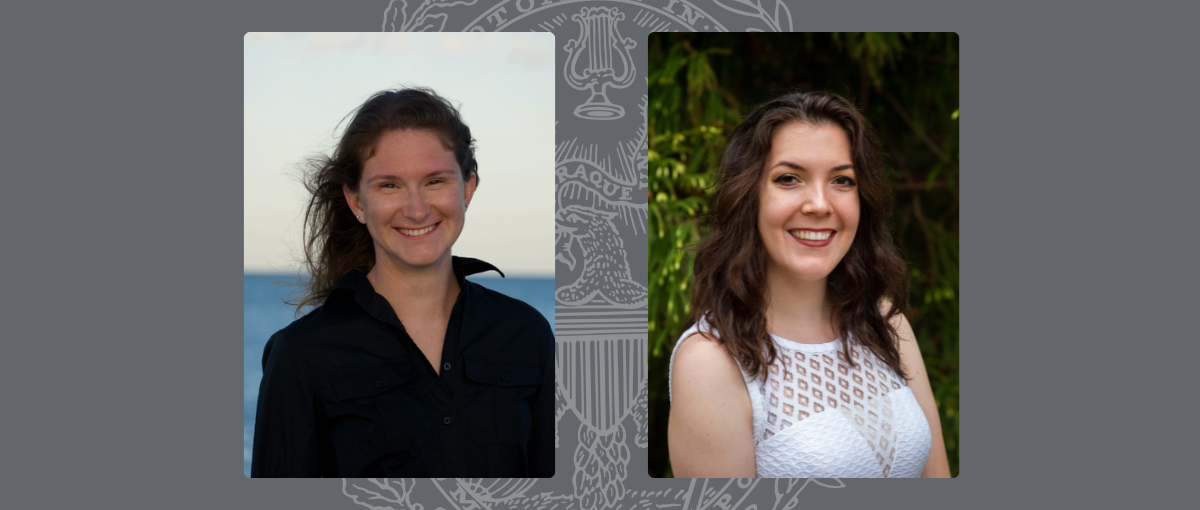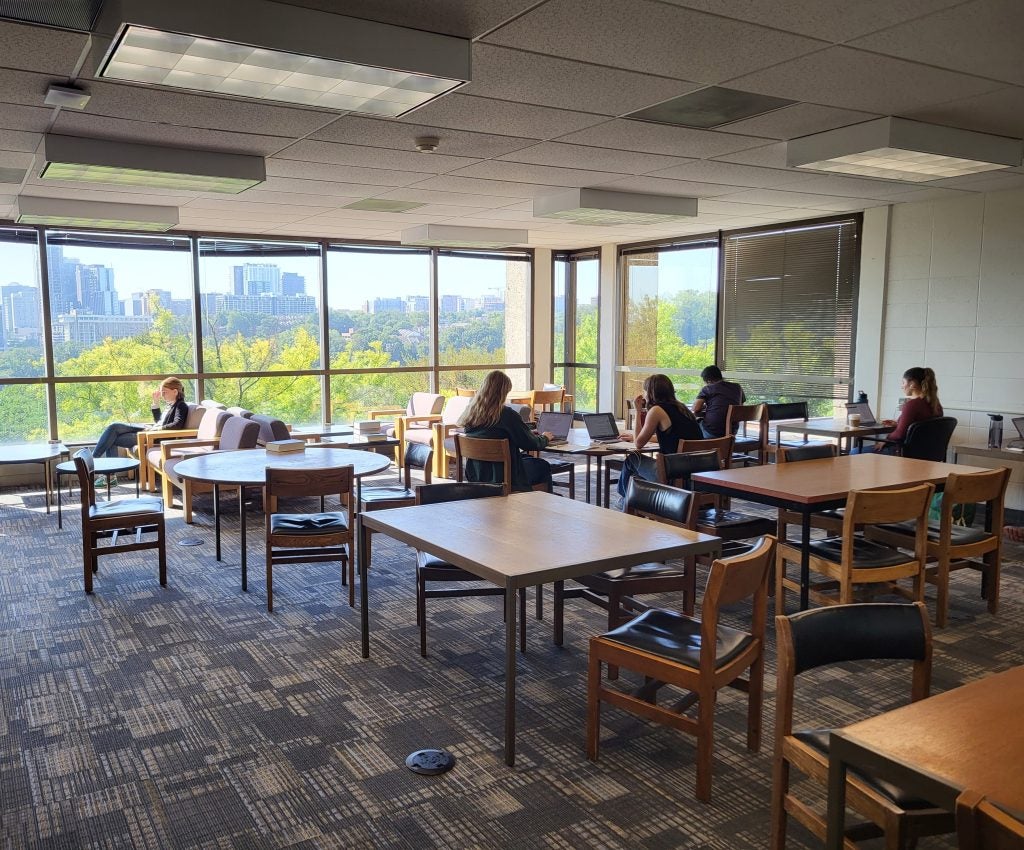Research on Echolocation and Pancreatic Cancer Earn Doctorate Students ARCS Fellowship Award
For over a decade, the Metropolitan Washington Chapter (MWC) of the ARCS (Achievement Rewards for College Scientists) Foundation has been supporting Georgetown University with scientific research in the STEM field.
MWC recently named Ellen Jacobs and Zoe Malchioldi as the 2023-24 ARCS Scholar Award recipients. These outstanding scholars each received a generous scholarship of ,000 to fund their research projects.
Explore how Jacobs’ research on dolphins and Malchiodi’s investigation into pancreatic cancer served as the catalyst for their selections.
Team Leader and Strong Scientist
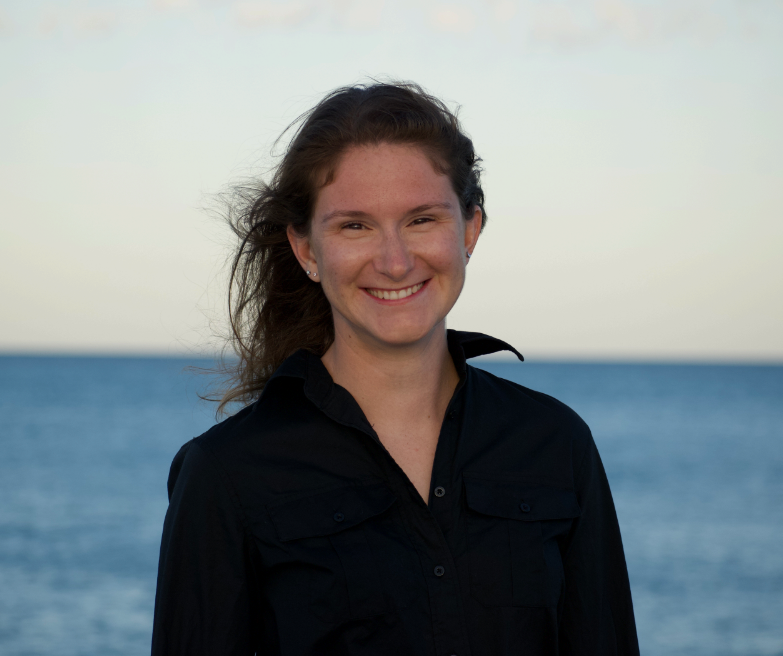
Ellen Jacobs
Ellen Jacobs, a Ph.D. candidate in the Department of Biology, was named the 2023-24 MWC Mars Foundation Scholar. Her dissertation research focuses on investigating dolphins’ modification of echolocation with and without sponging tools.
In 2019, Jacobs enrolled at Georgetown University to be able to work with Distinguished University Professor Dr. Janet Mann, a well-respected expert in the field of marine mammal behavior. “Ellen came to my lab with a strong background in bioacoustics and she was able to combine the strengths of our lab in behavioral ecology with her talents to address exciting problems that we have long wondered about,” said Mann.
Mann thinks highly of Jacobs’ ability as a scientist and a team leader. Her research tackles the fundamental question regarding dolphins’ use of sponge tools for echolocation. She creatively addresses the costs and benefits of tool use for dolphins.
“I’m excited and honored to join the ranks of the ARCS Fellows, with such well-known alumni .”
– Ellen Jacobs
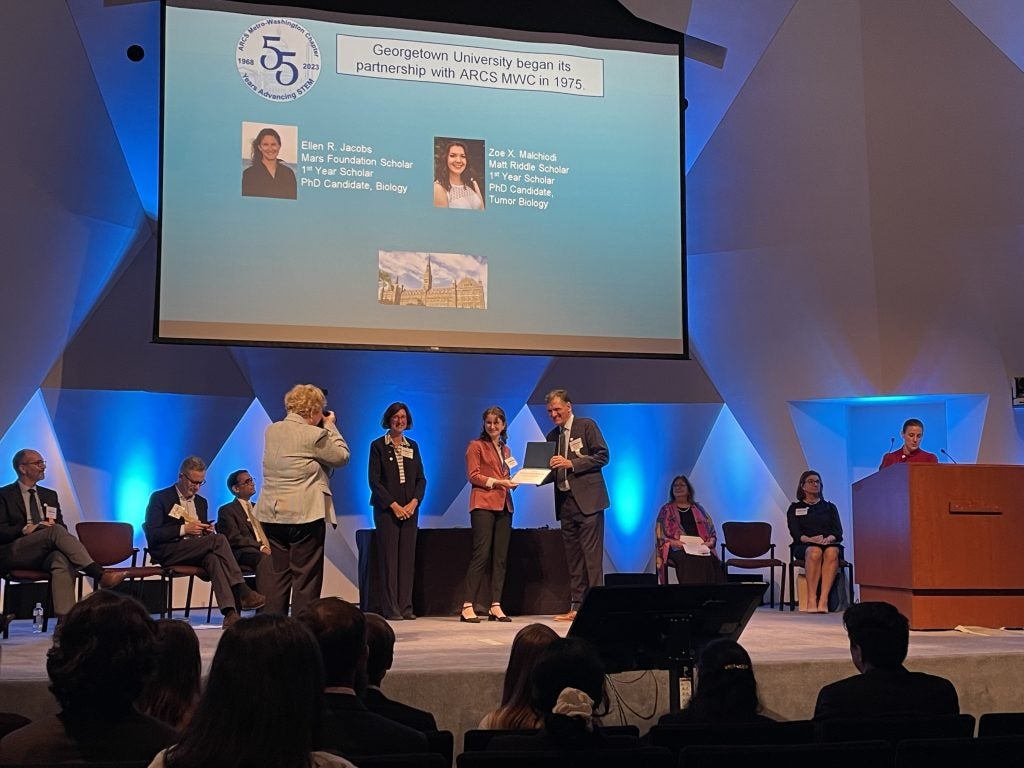
Photo Credit: Elizabeth George
The ARCS Award helped cover Jacobs’ research expenses for a six-week research trip in Perth, Australia to collaborate with researchers from Curtin University. She collected acoustic data and sponge specimens in Shark Bay, Western Australia. Jacobs’ research will be the first to explore Shark Bay bottlenose dolphins’ use of echolocation during foraging with sponge tools, according to MWC.
Reflecting on the application process for the ARCS Scholar Award, Jacobs noted that, “The Foundation is not afraid of new techniques, approaches and technologies. They pride themselves on fostering the next generation of scientists and the methodologies they adopt to answer new and exciting questions.” She encourages future applicants to keep this insight in mind.
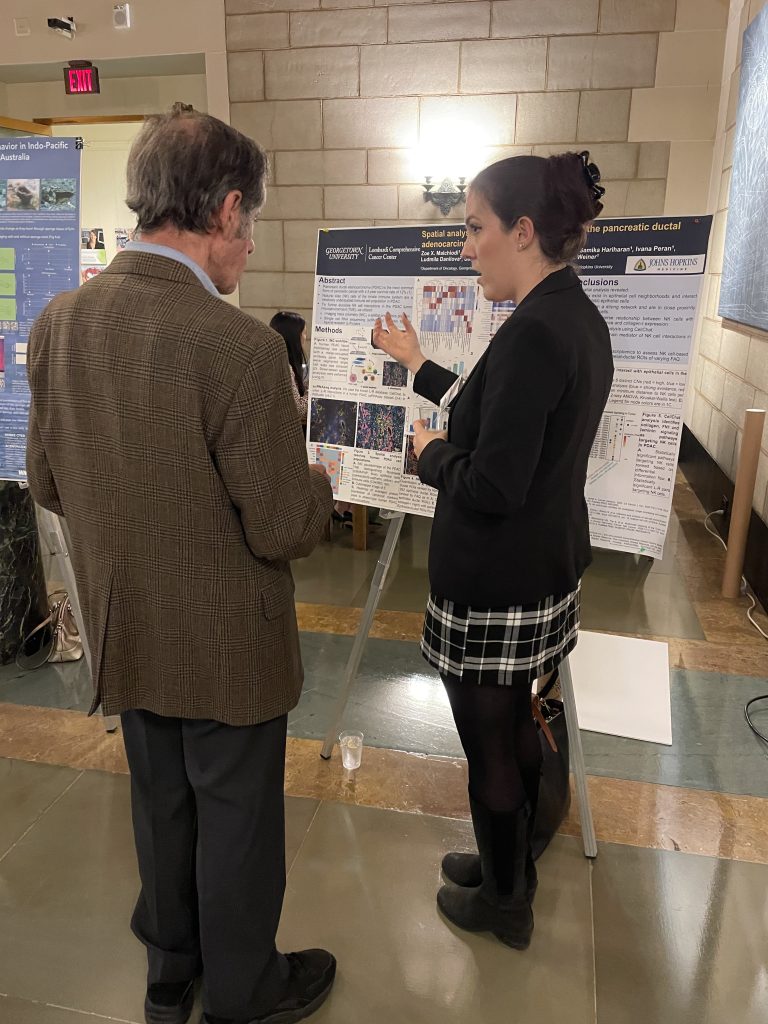
Zoe Malchiodi presents research on pancreatic cancer
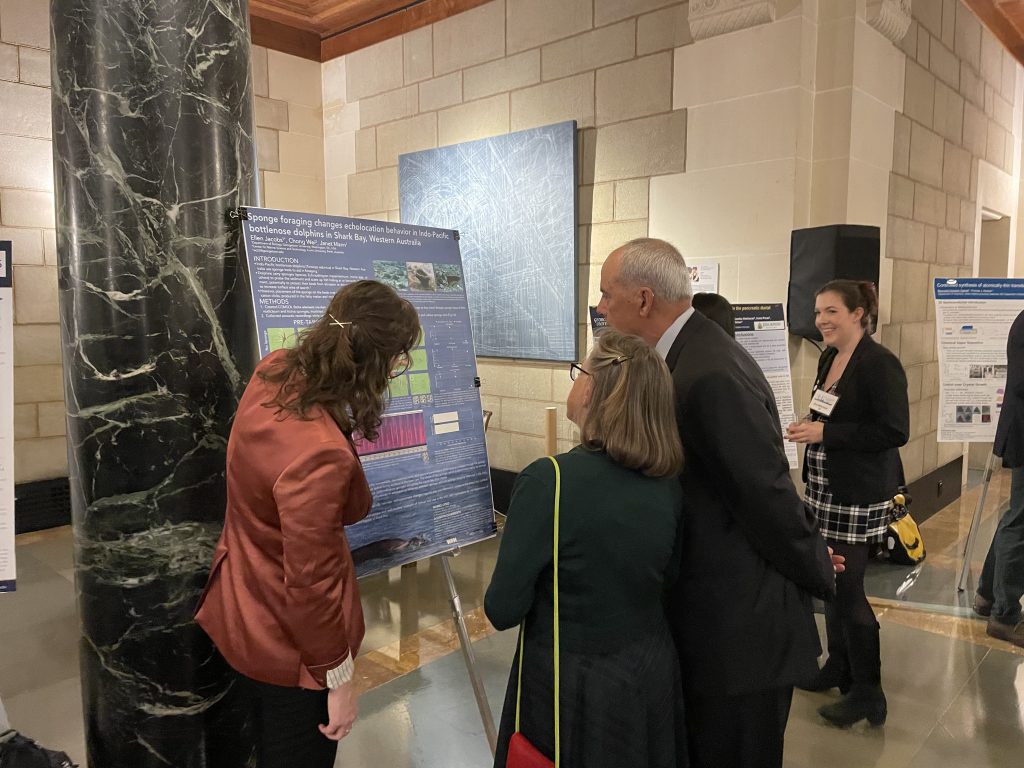
Ellen Jacobs presents research on dolphins’ use of echolocation during foraging with sponge tools
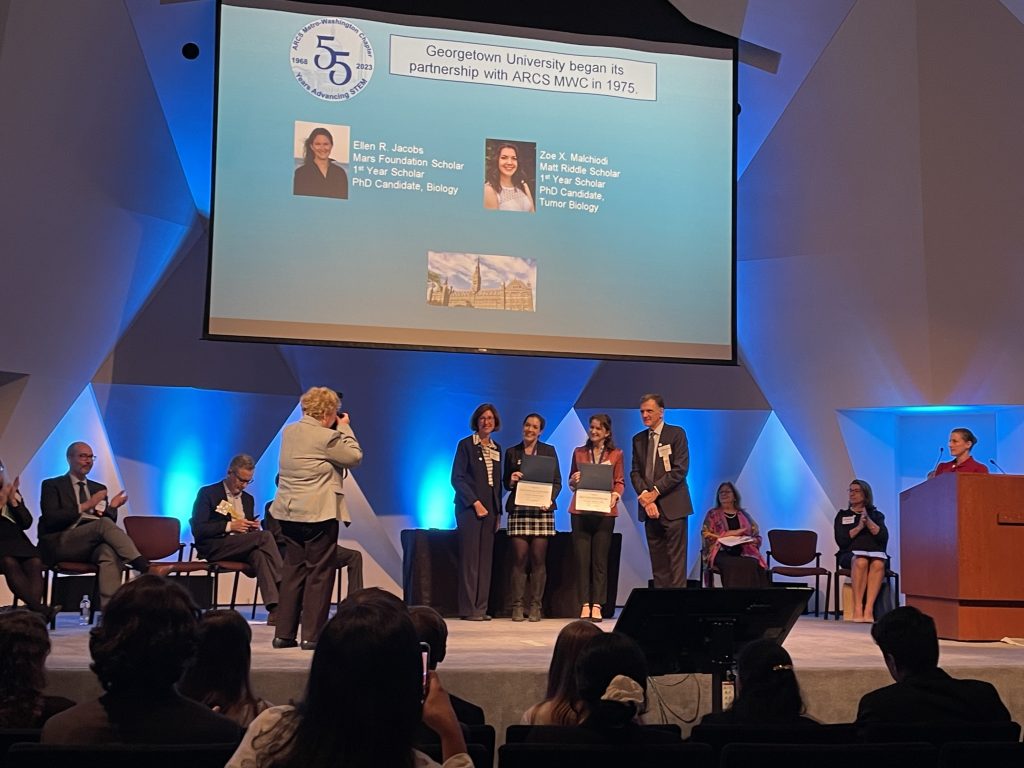
Malchiodi and Jacobs accept ARCS Chapter Scholar Award
Taking on Novel Cancer Immunotherapies
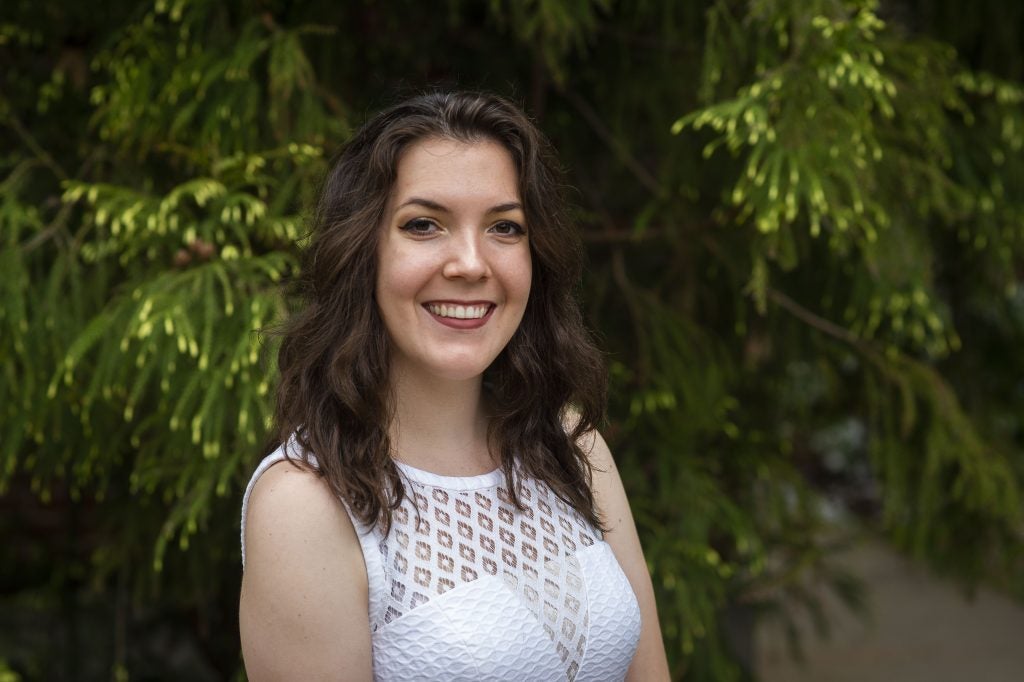
Zoe Malchiodi
A doctoral candidate in the Biomedical Graduate Education Tumor Biology Program, Zoe Malchiodi graduated from Boston University in 2016 with a Bachelor’s degree in Biochemistry and Molecular Biology. She is currently mentored by Dr. Louis M. Weiner. She was named the 2023-24 MWC Matt Riddle Scholar.
Malchiodi’s dissertation research investigates the mechanisms of immune cell interactions in pancreatic cancer by using spatial technologies. “Since pancreatic cancer is so difficult to treat, I wanted to further understand how our immune system, particularly Natural Killer cells, function in this disease,” said Malchiodi. Through this research, she wants to explore the role the human immune system plays in regulating cancer development and ways to enhance anti-tumor immune effects.
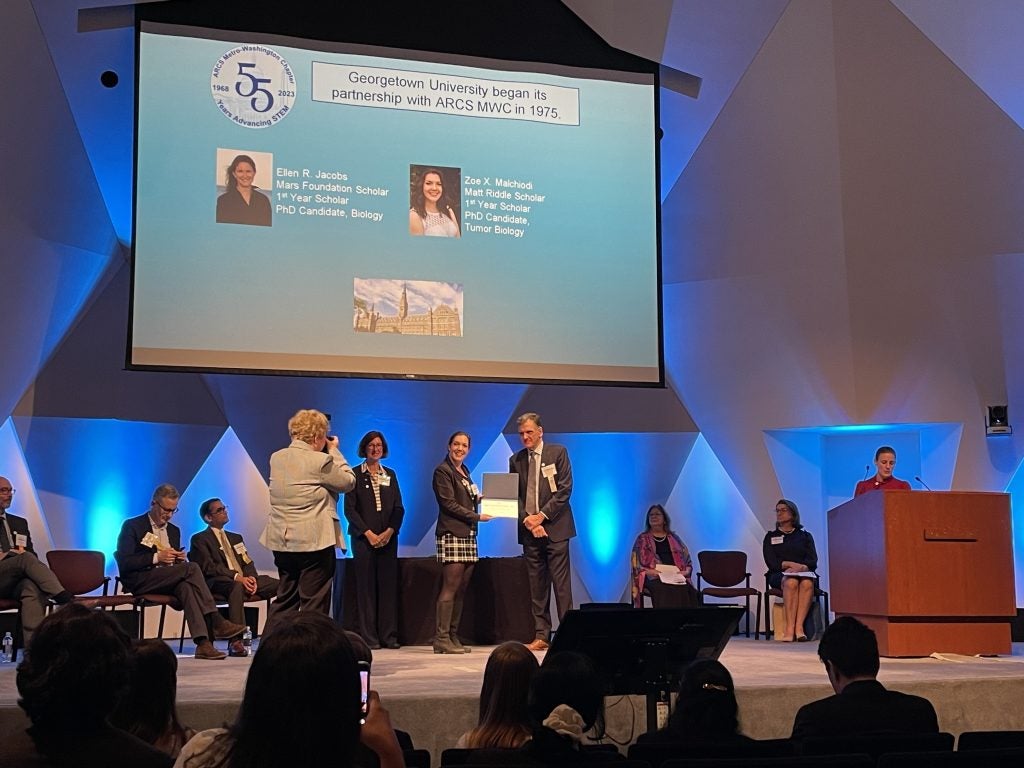
Photo Credit: Elizabeth George
The ARCS Award will help cover the cost of experiments she is performing – further assessing differentially expressed genes in human pancreatic cancer samples. Upon receiving the award, she reflected, “It is a great honor to have the importance of my work recognized, and I’m excited to continue answering important research questions with the support of the ARCS Award.”
Malchiodi chose to pursue her Ph.D. at Georgetown because she was drawn to the Tumor Biology program, which she commented provides her with a variety of research opportunities in her field.
As Malchiodi’s mentor, Dr. Weiner believes that her research offers important new insights for the development of novel cancer immunotherapies. “Zoe has the scientific courage to take on complex problems and develop the skills and experience to employ novel technical and analytical techniques in the service of scientific discovery with relevance to human health,” said Weiner.
Her advice to future applicants of the ARCS Scholar Award? Tell your story.
“Storytelling is an important part of science and is the approach I used for my application. The key to scientific communication is to be transparent and teach others within – and outside – our field about the importance of our research,” said Malchiodi.
More About Fellowships
If you’re interested in learning how to develop a fellowship application, check out the Office of Graduate Fellowships & Awards’ writing workshops, offered monthly. Review application requirements for the 2024-25 ARCS Scholar Award.
Subscribe to the Fellowships & Awards newsletter and register for their workshops on Campus Groups.
– By Maya Nguyen and Jessica Marr (G’19)
